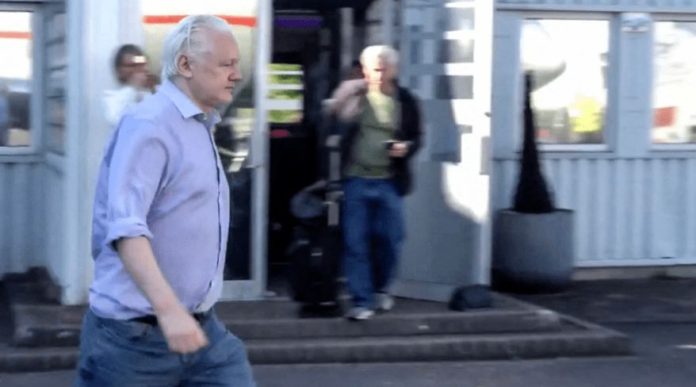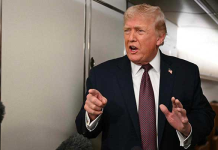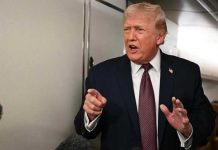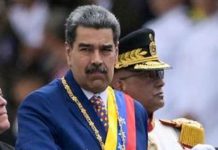LONDON, JUN 25: WikiLeaks founder Julian Assange is due to plead guilty on Wednesday to violating US espionage law, in a deal that will set him free after a 14-year British legal odyssey and allow him to return home to Australia.
Assange was released from prison on Monday and has left Britain, WikiLeaks said, as he reached a landmark plea deal with US authorities.
“Julian Assange is free,” WikiLeaks wrote on X of its founder, who had been detained in Britain for five years as he fought extradition to the United States which sought to prosecute him for revealing military secrets.
He has agreed to plead guilty to a single count of conspiracy to obtain and disseminate national defence information, according to a document filed in court in the Northern Mariana Islands in the Pacific.
Assange is scheduled to appear in the US territory on Wednesday morning local time.
He is expected to be sentenced to 62 months in prison, with credit for the five years and two months he has served in prison in Britain. This means he could return to his native Australia.
The Australian government responded that Assange’s case had “dragged on for too long” and there was “nothing to be gained by his continued incarceration”.
The publisher, now aged 52, was wanted by Washington for publishing hundreds of thousands of secret US documents from 2010 as head of the whistleblowing website WikiLeaks.
During his ordeal, Assange became a hero to free speech campaigners around the world and a villain to those who thought he endangered US national security and intelligence sources by revealing secrets.
US authorities wanted to put Assange on trial for divulging military secrets about the wars in Iraq and Afghanistan. The plea bargain agreement will presumably end Assange’s nearly 14-year legal drama.
Assange was indicted by a US federal grand jury in 2019 on 18 counts stemming from WikiLeaks’ publication of a trove of national security documents.
Stella Assange, the wife of the WikiLeaks founder Julian, told Reuters they would seek a pardon after he pleaded guilty to violating US espionage law, saying the prosecution was a “very serious concern” for journalists around the world.
“The fact that there is a guilty plea, under the Espionage Act in relation to obtaining and disclosing National Defence information is obviously a very serious concern for journalists and national security journalists in general,” she said.
Australian PM says case ‘dragged on for too long’
Australia’s Prime Minister Anthony Albanese welcomed a “delicate” plea deal for WikiLeaks founder’s freedom, saying the case had “dragged on for too long”.
“The government is certainly aware that Australian citizen Mr Julian Assange has legal proceedings scheduled in the United States,” Albanese told parliament.
“While this is a welcome development, we recognise that these proceedings are crucial and they’re delicate.” Australia has been providing consular assistance to Assange, he said.
Albanese said he had been clear about his position on Assange’s case both as opposition leader and since becoming prime minister in 2022.
“Regardless of the views that people have about Mr Assange’s activities, the case has dragged on for too long, there is nothing to be gained by his continued incarceration and we want him brought home to Australia,” he said.
“We have engaged and advocated Australia’s interests, using all appropriate channels, to support a positive outcome,” Albanese added.
“I will have more to say when these legal proceedings have concluded, which I hope will be very soon.”
UN welcomes release
The United Nations hailed Assange’s release from detention in Britain as “significant steps towards definitively settling this case”.
“We welcome the release of Julian Assange from detention in the UK,” UN rights office spokeswoman Liz Throssell told AFP, adding that the final plea deal was still awaiting approval.
“As we had noted repeatedly, this case raised a series of human rights concerns,” she said.
“The increasingly protracted detention of Assange also raised separate issues of concern,” Throssell said, adding: “We will continue to monitor developments over the coming days.”
Extradition battle
WikiLeaks released a short video of Assange speaking with people in what appeared to be an office and then boarding a plane.
According to Thai officials, the plane carrying Assange was expected to refuel and resupply in Bangkok before carrying on to Saipan, capital of the Northern Mariana Islands.
Assange’s family expressed deep gratitude for his freedom, including his mother Christine Assange who said in a statement carried by Australian media that she was “grateful that my son’s ordeal is finally coming to an end”.
His wife Stella meanwhile thanked campaigners, writing on social media platform X that “words cannot express our immense gratitude”.
Assange met his wife while he was holed up in Ecuador’s London embassy, then married her in a ceremony in prison. They now have two young children.
The announcement of the deal came two weeks before Assange was scheduled to appear in court in Britain to appeal a ruling approving his extradition to the United States.
Assange had been detained in the high-security Belmarsh prison in London since April 2019.
WikiLeaks founder Julian Assange arrives at the Westminster Magistrates Court, after he was arrested in London, Britain on April 11, 2019. — Reuters/File
He was arrested after spending seven years in Ecuador’s London embassy to avoid extradition to Sweden, where he faced accusations of sexual assault that were eventually dropped.
The material he released included a video showing civilians being killed by fire from a US helicopter gunship in Iraq in 2007. The victims included two Reuters journalists.
The United States has accused Assange under the 1917 Espionage Act. Supporters have warned this means he could be sentenced to 175 years in prison.
The British government approved his extradition in June 2022. In the latest twist to the saga, two British judges said in May that he could appeal against his extradition to the United States.
The appeal was to address the question of whether, as a foreigner on trial in America, he would enjoy the protections of freedom of speech accorded under the First Amendment to the US Constitution.
The plea deal was not entirely unexpected. President Joe Biden had been under growing pressure to drop the long-running case against Assange.
In February the government of Australia made an official request to this effect and Biden said he would consider it, raising hopes among Assange supporters that his ordeal might end.
Emma Shortis, senior researcher at The Australia Institute think tank, told AFP that both Canberra and Washington had a “recognition that this had to end”. “There was just no way this wasn’t becoming an issue for the (US-Australia) alliance,” Shortis said.

















